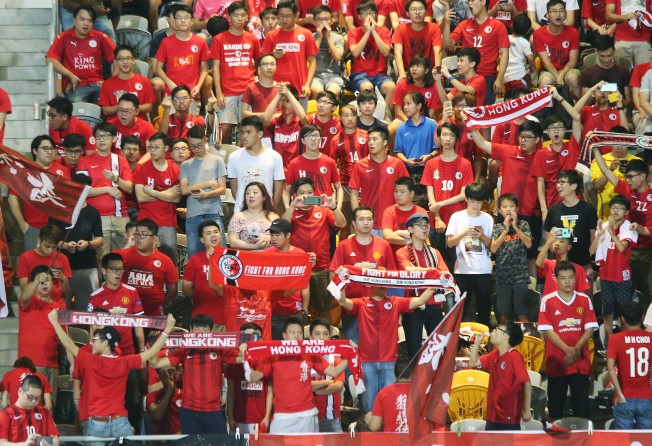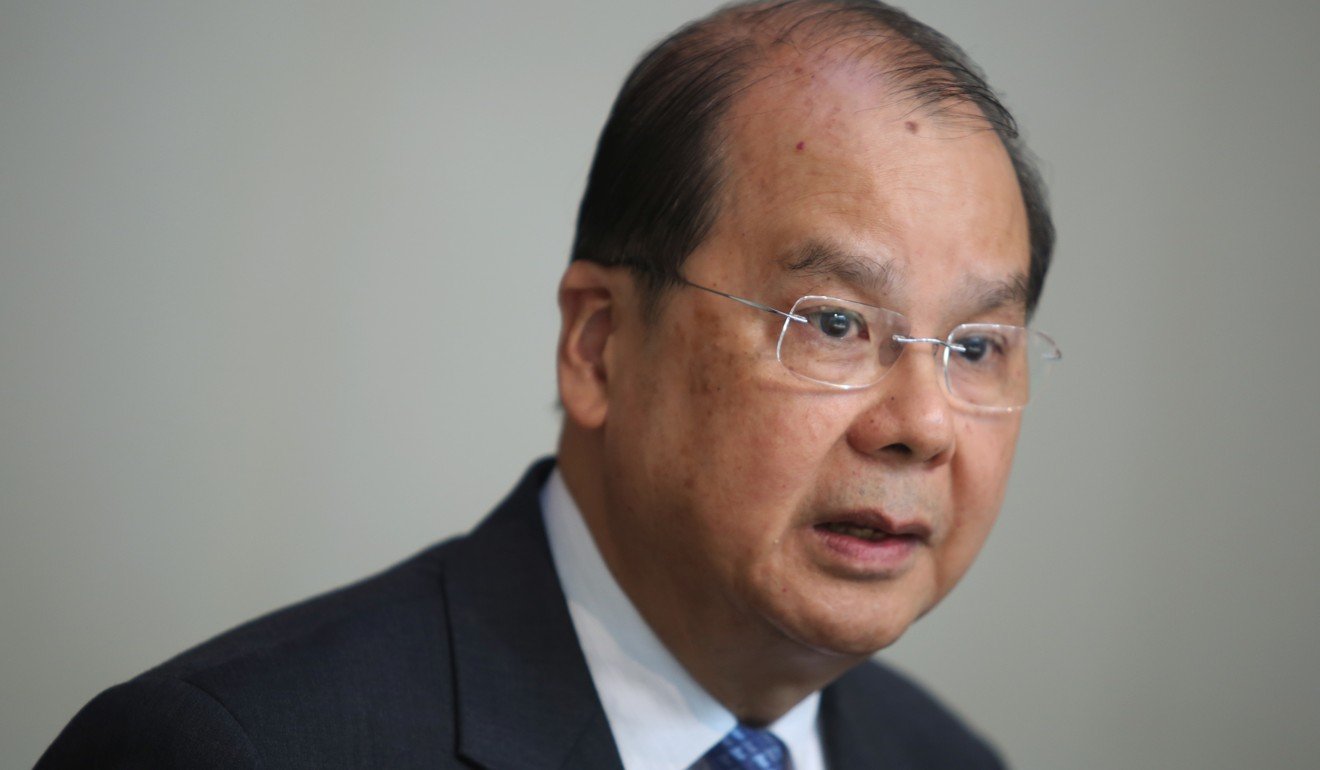Hong Kong soccer matches may be played behind closed doors if anthem boos continue, chief secretary warns
As city gets set to face Malaysia next week, Matthew Cheung Kin-chung warns there will be consequences for fans who boo Chinese national anthem

Hong Kong’s soccer team may be forced to play international matches behind closed doors if fans jeer at the Chinese national anthem again during next week’s match with Malaysia, the city’s chief secretary has warned.
Matthew Cheung Kin-chung issued the ultimatum to soccer fans on Saturday ahead of the city’s Asian Cup qualifier match, which will take place on Tuesday at Hong Kong Stadium.
The warning followed an appeal on Friday by the local Football Association which described such catcalls as “stupid” and “meaningless” after boos were heard at a friendly against Laos at Mong Kok Stadium on Thursday.
Hong Kong has seen a rise in anti-mainland sentiment in recent months, with some even calling for the city to break away from Chinese rule after the city’s pursuit of democracy clashed with Beijing in 2014 resulting in the 79-day Occupy sit-ins.
Cheung, after a public event on Saturday, said Hong Kong people must respect the national anthem and the national flag.
Watch: Hong Kong football fans boo their national anthem
“[The booing] is absolutely unacceptable,” he said. “I hope the public do not have these behaviours any more, because if it happens again next week in the match against Malaysia, Hong Kong may have to play behind closed doors in international matches, which will not be a good thing for any football fan and will greatly damage Hong Kong’s image. I hope some people reflect on this seriously.”
The trend of booing the anthem began two years ago in the wake of Hong Kong’s Occupy pro-democracy protests. The association, which is liable for improper conduct among supporters of its team, has been fined twice by soccer’s international governing body Fifa for failing to control crowd behaviour.
Cheung added that mainland China had passed a national anthem law and Hong Kong would also need to adopt the law through its separate legal system.
“We will have to handle [establishing the law] eventually, so I think this is an issue we cannot evade in our legislation agenda,” he said. “Of course, we need to have our colleagues in the Department of Justice provide legal advice, and it needs to be passed on to the Legislative Council.”
He did not indicate when the Hong Kong law was due.
Across the border, the law was passed last month by the National People Congress, China’s top legislature, stating that “attendees at events where the anthem is played are required to stand straight and remain solemn for the song”.

Offenders on the mainland are liable to 15 days in detention, but Hong Kong residents will not be affected until a local version of the law is passed.
Fifa previously fined the association 10,000 Swiss francs (HK$79,900) over boos for the anthem before a home game against the China team in November 2015, and warned that further infringements would lead to harsher sanctions.
Another fine, of 5,000 Swiss francs, was issued in the same year after attendees booed the anthem during a World Cup qualifier against Qatar at home.
Civic Party lawmaker Dennis Kwok Wing-hang said the Hong Kong government should conduct a public consultation after it finished drafting the law.
Kwok, who sits on Legco’s security panel, said he would focus on whether the law was clear in its details, such as what constituted respecting the anthem.
“The government needs to ask why some citizens would [boo the national anthem] and think how it can solve what people are upset about,” Kwok said. “I don’t think setting up a law is of much use. It will only cause more conflict between the police force and people.”